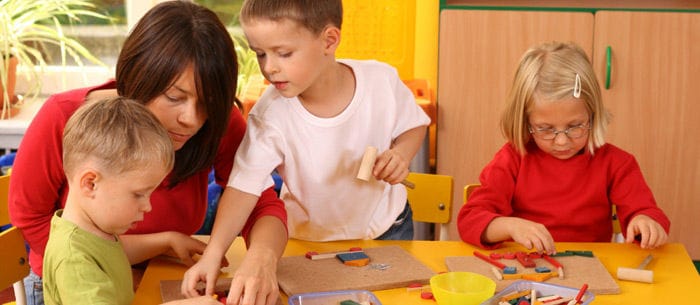The term ‘special needs’ can be applied to a wide range of disabilities; some are obvious, such as a child with a physical impairment who uses a wheelchair. Other disabilities may be less apparent, for example learning disabilities, epilepsy or autistic spectrum disorders.
There is a good chance that your child, at some point in their educational or social life, will meet someone with a disability. You should encourage your child to learn about and be a friend to all their peers, regardless of their abilities and differences.
Basic ideas to share with your child:
- No two people are the same; some differences are just more noticeable.
- A disability is only one characteristic of a person. People have many qualities; likes and dislikes, strengths and challenges.
- Children with disabilities are like all children in that they want friends, respect and to be included.
- Children can be born disabled or become disabled after an accident or illness. Your child will not catch another child’s disability by playing with them.
- Someone with physical challenges does not necessarily have a cognitive disability.
- Children with disabilities can do many of the things your child does, but it might take them longer. They may need assistance or adaptive equipment to help them.
Try to use clear, respectful language when talking about someone with disabilities. For a younger child, keep explanations simple, such as, “She uses a wheelchair because part of her body does not work in the same way as yours. Care.com nanny expert, Rosemary Albone suggests that talking about or describing special needs at home before your child comes into contact with a special needs peer, can be a good idea “This way, you are helping your child understand that there are many sorts of people in the world and they won’t be distracted with trying to understand what is different about that peer. Instead, they will be able to concentrate on making friends with them AND finding things in common.”
Make it clear that name calling, even if meant as a joke, is always unacceptable as it hurts people’s feelings. Generally children are actually very accepting of the special needs of others and rarely comment on it.
Special needs at school
While each child learns differently and at his or her own pace, children with disabilities may need extra school support or accommodations. Some children with special needs attend specialist schools, though many are mainstream educated.
If your child has a classmate with special needs they may notice certain things, such as:
- Special teachers or assistants may come into the classroom to work one-on-one with the child.
- Sometimes pupils will leave the class for a short while to receive a lesson tailored to their needs.
- Certain changes may be made to accommodate the child’s needs such as being given a particular seat so that they can see and hear the lesson or special textbooks that are easier for them to read.
Getting to know children with disabilities
When it comes to approaching someone with a disability, children may be more comfortable than their parents because they are less inhibited. Some adults, especially those without previous exposure to people with disabilities, may be more timid. Worried about appearing intrusive or insensitive, they may not know what to say or do.
However, if you or your child is unsure about approaching someone with a disability, here are some helpful tips:
- Most parents of children with disabilities would prefer that other adults ask them about their child directly, rather than avoiding them. A smile or friendly “Hello!” is an easy icebreaker; don’t assume that the child is unable to speak for themselves.
- Even if a child doesn’t talk, there are still activities the children can do together, such as play board games or arts and crafts.
- If your child wants to play with a child with a disability or invite him or her to a birthday party, encourage it. Call the other parent and ask what actions you can take to accommodate their child’s needs.
- Share any concerns with the other parent. Parents of children with disabilities will often be happy to facilitate a successful play date or outing.
- Extra effort goes a long way. For instance, learning simple signs so that you can better communicate with a child with communication problems will be much appreciated; the Cbeebies programme ‘Something Special‘ introduces children to the Makaton signing system.
Learning more about disabilities
Reading or learning about a disability is a great way to further understand a child’s experiences. It may also help answer any questions you or your child may have.
Your local library can be a great resource for finding age-appropriate books and materials:
- Read picture books with younger children, and talk about the subject afterwards.
- Older readers can be given longer stories incorporating characters with special needs. Ask your child about the book once they have finished reading and discuss the issues raised.
- Some audio-visual materials have positive portrayals of children with disabilities. ‘Sesame Street’ for example, routinely includes children with disabilities in their episodes and Cbeebies’ Cerrie Burnell is a good example of how people can overcome physical impairments to lead ‘normal’ lives.
- Websites with age-appropriate explanations and activities can be interesting and fun to explore.
Disability-awareness programs in schools
Find out if your child’s school offers any disability-awareness curriculum, these programs teach children about different disabilities, often through engaging activities and guest speakers. Consider volunteering if they need parents to assist; it can be a wonderful experience for both you and the children.
